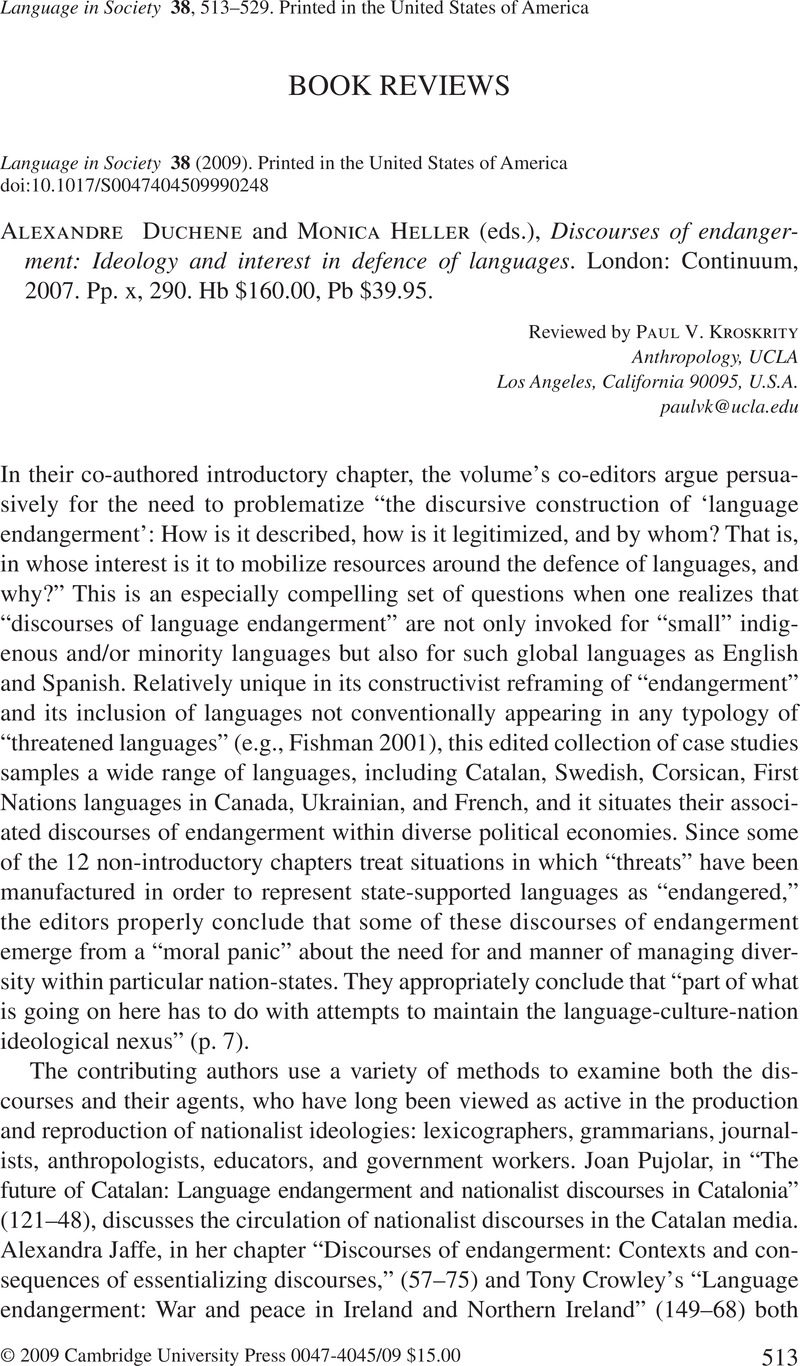Crossref Citations
This article has been cited by the following publications. This list is generated based on data provided by Crossref.
Horner, Kristine
2015.
Language regimes and acts of citizenship in multilingual Luxembourg.
Journal of Language and Politics,
Vol. 14,
Issue. 3,
p.
359.



